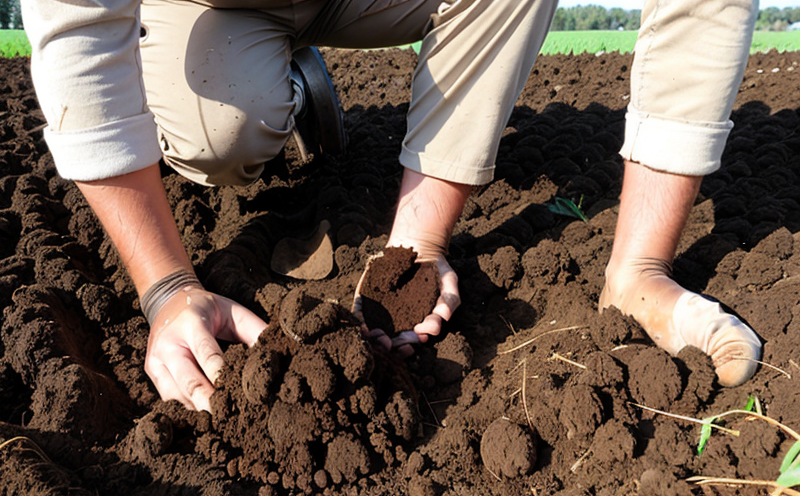Soil Magnesium Content Testing
Soil magnesium content testing is a critical component of agricultural and forestry management. Magnesium (Mg) plays an essential role in plant nutrition, making it one of the secondary macronutrients alongside nitrogen, phosphorus, potassium, calcium, sulfur, and iron. The primary function of magnesium is to act as a catalyst for numerous enzymatic reactions involved in photosynthesis, respiration, and energy transfer within plants.
Testing soil magnesium content helps determine whether this essential nutrient is present at adequate levels or if there exists a deficiency that could hinder plant growth and ultimately affect crop yield. A deficiency can lead to stunted growth, yellowing of leaves (chlorosis), reduced root development, and decreased fruit size among other symptoms.
Accurate soil magnesium content testing also supports sustainable agricultural practices by ensuring optimal nutrient management plans are implemented without overapplying fertilizers which may have negative environmental impacts such as water pollution through runoff. This aligns with global trends towards more eco-friendly farming methods that promote biodiversity and resilience against climate change effects.
The process involves collecting representative soil samples from various locations across the field or forest area to be tested. Samples should cover different depths since magnesium distribution can vary at different points within a plot due to factors like topography, parent material composition, depth of cultivation layers etcetera. Sample preparation then follows standard procedures outlined in international standards such as ISO 17266:2013 or ASTM D2487-19.
Once prepared, the samples undergo analysis using analytical techniques like atomic absorption spectrophotometry (AAS), inductively coupled plasma optical emission spectroscopy (ICP-OES) or flame photometry. These methods provide precise measurements of magnesium concentrations which are reported back to the client along with recommendations for any necessary adjustments based on local conditions.
Understanding soil magnesium content is crucial not only for optimizing crop production but also for maintaining healthy ecosystems within agricultural and forestry settings. By addressing potential deficiencies early, producers can improve yields while minimizing costs associated with unnecessary applications of fertilizers or other inputs. Moreover, this knowledge contributes significantly towards achieving sustainable development goals by promoting efficient resource use practices.
Frequently Asked Questions
Why It Matters
- Ensures optimal nutrient availability for maximum crop yields and quality.
- Aids in developing sustainable farming practices that minimize resource waste.
- Supports decision-making processes related to land management strategies.
- Promotes healthier ecosystem dynamics within agricultural landscapes.
Quality and Reliability Assurance
At our laboratory, we adhere strictly to ISO/IEC 17025 accreditation standards which guarantee the highest levels of proficiency and reliability in all our services. Our team comprises experts who employ advanced analytical techniques ensuring accuracy down to parts per million (ppm) sensitivity.
- Standard Operating Procedures (SOPs): Strict adherence to established protocols ensures consistent and repeatable results regardless of operator differences.
- Calibration: Regular calibration checks ensure that all instruments remain accurate over time.
- Quality Control Samples: Use of blind samples allows us to verify the precision and accuracy of each test conducted in our facility.
We take pride in maintaining these rigorous standards because they reflect our commitment to delivering reliable data that can be trusted by decision-makers across sectors including agriculture, horticulture, forestry, and environmental science.
Competitive Advantage and Market Impact
- Provides a competitive edge through informed decisions based on accurate soil magnesium content information.
- Aids in compliance with regulatory requirements related to sustainable agriculture practices.
- Promotes innovation by enabling research into new approaches for enhancing plant nutrition and productivity.
By offering this service, we contribute significantly towards fostering a more resilient agricultural sector capable of meeting future challenges posed by climate change and increasing demand for food security worldwide. Our expertise in soil magnesium content testing helps clients stay ahead of competitors who may not prioritize such crucial aspects of their operations.





